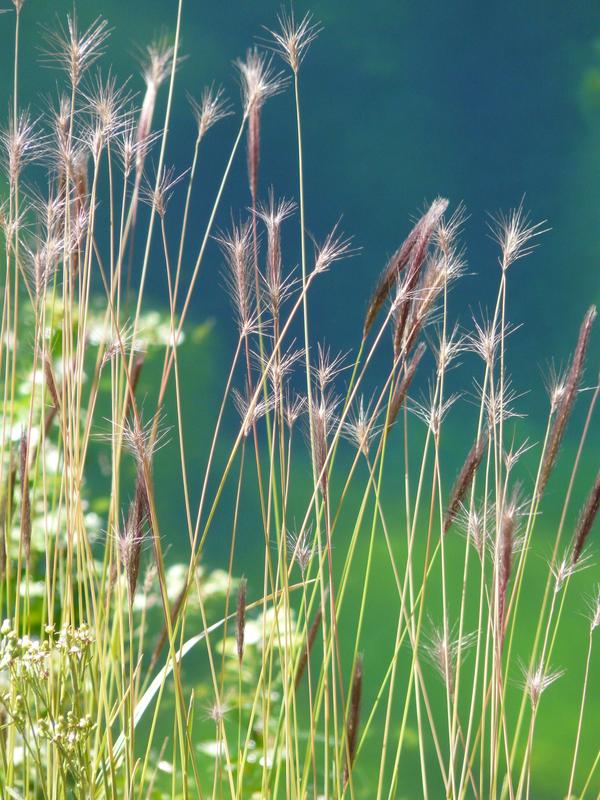

Hordeum comosum: One example of wild barley containing nonnative DNA-sequences of Panicoideae origin.
Dr. Frank Blattner/IPK
The exchange and recombination of genetic material between procaryotes and from parasites and pathogens into plants is known to be commonplace. Also plant to plant exchanges of nonnuclear DNA (deoxyribonucleic acid) are also relatively common. However, nuclear gene transfers between sexual incompatible vascular plant species were thought to be extremely rare.
This assumption is now questioned by a study online published as an Early Edition of the renowned scientific journal Proceedings of the National Academy of Sciences (PNAS). Its authors demonstrate, that such events are not as rare as thought hitherto. Rather, their research findings indicate, that horizontal gene transfer between vascular plant species is a genuine biological phenomenon.
„In our study we analysed the genetic material of about 25 grass species, mainly from the barley genus Hordeum. In 16 species out of them we proved, that at least nine independent DNA-transfers of Panicoideae origin ̶ a subfamily comprising important crop species like maize, sugar cane and panic ̶ seem to have been occurred,” illustrates the lead author of the study Václav Mahelka from the Institute of Botany in Prúhonice.
„Our phylogenetic, cytogenetic, and genomic analyses imply that the nonnative sequences were acquired during the last 1 to 5 My through a series of independent events.” His colleague Dr. Frank Blattner from IPK in Gatersleben adds „These findings were a surprise, because Poodieae and Panicoideae lineages separated from one another around 60 Mya and are sexually incompatible. However, now we assume, that the supposed rarity of exotic DNA transfer between vascular plants more likely reflects technical limitations in its detection than reflecting essential biological circumstances.”
Publication:
Mahelka, V., Krak, K., Kopecký, D., Fehrer, J., Šafár, J., Bartoš, Hobza, R., Blavet N., and Blattner, F. (2017): Multiple horizontal transfers of nuclear ribosomal genes between phylogenetically distinct grass lineages, PNAS Early Edition, www.pnas.org/cgi/doi/10.1073/pnas.1613375114
Further Information:
The Leibniz-Institute of Plant Genetics and Crop Plant Research (IPK) in Gatersleben is one of the world's leading international institutions in the field of plant genetics and crop science. Its research programme and services contribute materially to conserving, exploring and exploiting crop diversity. Its research goals are driven by the need to ensure an efficient and sustainable supply of food, energy and raw materials, thereby addressing a major global ecological challenge. www.ipk-gatersleben.de
Press Contact:
Regina Devrient, IPK
Managing Office I Public Relations
Tel. +49 039482 5837
E-Mail: devrient@ipk-gatersleben.de
http://www.pnas.org/cgi/doi/10.1073/pnas.1613375114
http://www.ipk-gatersleben.de












